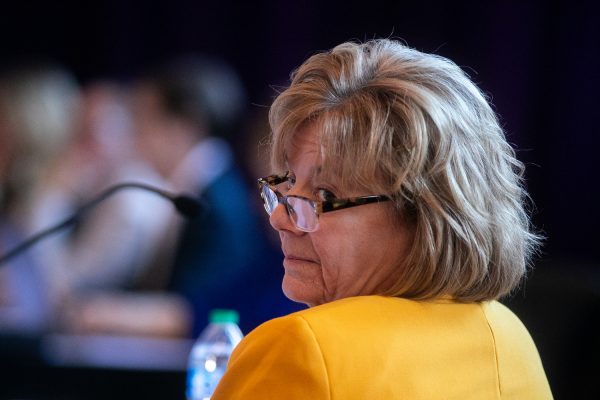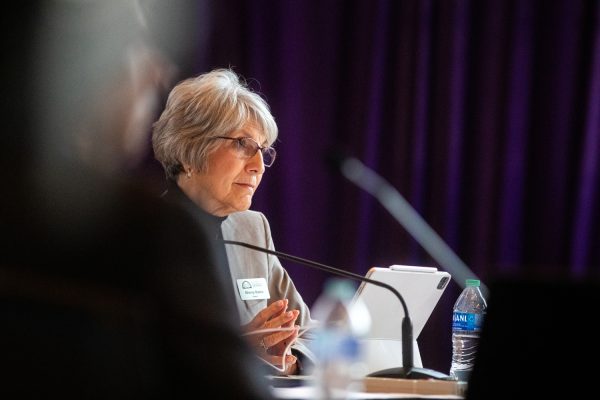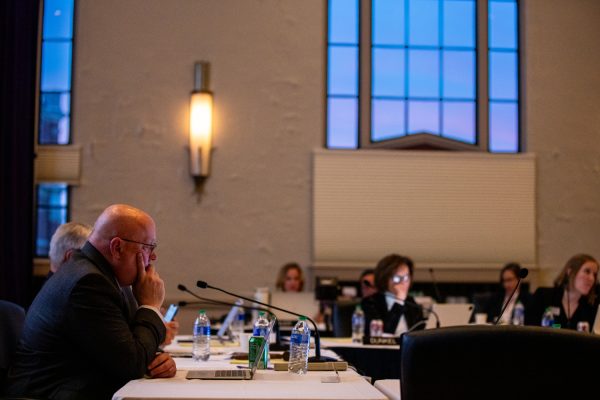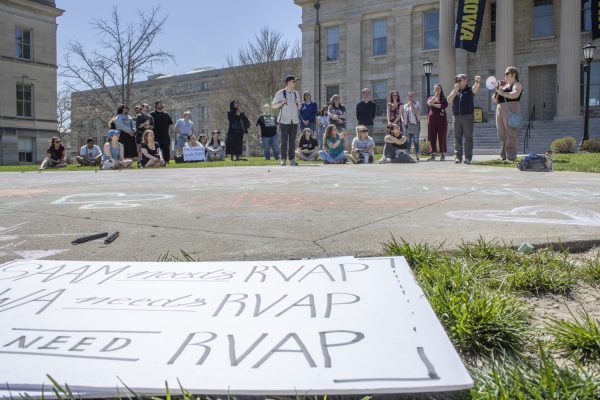Supreme Court: University of Iowa must respond to auditor’s subpoena on P3 utility partners
The Iowa Supreme Court ruled Friday that the UI must respond to a subpoena from state Auditor Rob Sand asking for details on a billion-dollar deal between French companies and the UI utility system.
Steam swirls around the University of Iowa Power Plant on the evening of Monday, Jan. 14, 2019.
April 30, 2021
The Iowa Supreme Court ruled Friday to allow the state auditor to subpoena details of a public private/partnership between French companies and the University of Iowa utility system.
The UI signed onto the billion-dollar deal in December 2019 with ENGIE and a Paris-based investment firm Meridiam to operate and maintain the university’s utility system in exchange for an upfront lump-sum payment of $1.165 billion to be managed over 50 years.
Iowa State Auditor Rob Sand subpoenaed details on the agreement in January, but the UI and state Board of Regents fought the subpoena in court, leading to the unanimous Iowa Supreme Court ruling on April 30 that will require the UI to respond to the subpoena.
“We appreciate the unanimous decision from the Iowa supreme court. This is a massive win for taxpayers. It protects their ability to know what state government is doing with their money,” Sand said in a statement to reporters on Friday.
The state Board of Regents argued in court that the audit was not legally authorized and that there needed to be a clear beginning and end to Sand’s audit. The state Supreme Court disagreed, and the ruling stated that Sand was in his right to subpoena the information.
Justice Edward Mansfield wrote in a concurring opinion that while conducting an audit or examination, the state auditor should have full access to information for past transactions, but should not go digging into future transactions.
“In other words, the existence of an authorized audit or examination entitles the State Auditor to have access to information; the State Auditor does not get to make free-standing requests for information which, ipso facto, create an audit. The job is auditor, not ‘investigator,’” Mansfield wrote.
Josh Lehman, state Board of Regents senior communications director, wrote in a statement to The Daily Iowan:
“We appreciate the Supreme Court hearing the case and providing clarification” in a statement to the press.














